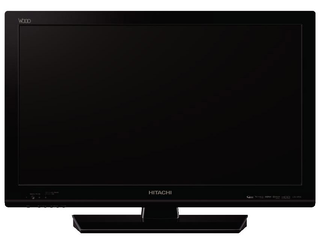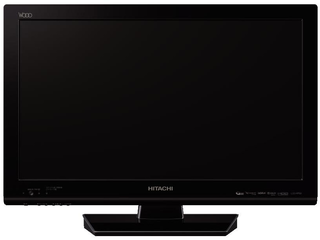ソフトウェアのライセンス情報(つづき)日立液晶テレビ( L22-HP09 / L26-HP09 )で使われるフリーソフトウェアモジュールに関するソフトウェア使用許諾契約書原文 ( 英文 )*18 /(66(5 *(1(5$/ 38%/,& /,&(16( 9HUVLRQ )HEUXDU\
Copyright © 1991, 1999 Free Software Foundation, Inc. 51 Franklin St, Fifth Floor, Boston, MA 02110-1301 USAEveryone is permitted to copy and distribute verbatim copies of this license document, but changing it is not allowed.[This is the first released version of the Lesser GPL. It also counts as the successor of the GNU Library PublicLicense, version 2, hence the version number 2.1.]3UHDPEOHThe licenses for most software are designed to take away yourfreedom to share and change it. By contrast, the GNU GeneralPublic Licenses are intended to guarantee your freedom to shareand change free software--to make sure the software is free forall its users.This license, the Lesser General Public License, applies to somespecially designated software packages--typically libraries--ofthe Free Software Foundation and other authors who decide touse it. You can use it too, but we suggest you first think carefullyabout whether this license or the ordinary General Public Licenseis the better strategy to use in any particular case, based on theexplanations below.When we speak of free software, we are referring to freedomof use, not price. Our General Public Licenses are designed tomake sure that you have the freedom to distribute copies offree software (and charge for this service if you wish); that youreceive source code or can get it if you want it; that you canchange the software and use pieces of it in new free programs;and that you are informed that you can do these things.To protect your rights, we need to make restrictions thatforbid distributors to deny you these rights or to ask you tosurrender these rights. These restrictions translate to certainresponsibilities for you if you distribute copies of the library or ifyou modify it.For example, if you distribute copies of the library, whethergratis or for a fee, you must give the recipients all the rightsthat we gave you. You must make sure that they, too, receive orcan get the source code. If you link other code with the library,you must provide complete object files to the recipients, so thatthey can relink them with the library after making changes to thelibrary and recompiling it. And you must show them these termsso they know their rights.We protect your rights with a two-step method: (1) we copyrightthe library, and (2) we offer you this license, which gives youlegal permission to copy, distribute and/or modify the library.To protect each distributor, we want to make it very clear thatthere is no warranty for the free library. Also, if the library ismodified by someone else and passed on, the recipients shouldknow that what they have is not the original version, so that theoriginal author's reputation will not be affected by problems thatmight be introduced by others.Finally, software patents pose a constant threat to the existenceof any free program. We wish to make sure that a companycannot effectively restrict the users of a free program byobtaining a restrictive license from a patent holder. Therefore,we insist that any patent license obtained for a version of thelibrary must be consistent with the full freedom of use specifiedin this license.Most GNU software, including some libraries, is covered by theordinary GNU General Public License. This license, the GNULesser General Public License, applies to certain designatedlibraries, and is quite different from the ordinary General PublicLicense. We use this license for certain libraries in order to282permit linking those libraries into non-free programs.When a program is linked with a library, whether statically orusing a shared library, the combination of the two is legallyspeaking a combined work, a derivative of the original library. Theordinary General Public License therefore permits such linkingonly if the entire combination fits its criteria of freedom. TheLesser General Public License permits more lax criteria for linkingother code with the library.We call this license the "Lesser" General Public Licensebecause it does Less to protect the user's freedom than theordinary General Public License. It also provides other freesoftware developers Less of an advantage over competing nonfree programs. These disadvantages are the reason we use theordinary General Public License for many libraries. However,the Lesser license provides advantages in certain specialcircumstances.For example, on rare occasions, there may be a special need toencourage the widest possible use of a certain library, so that itbecomes a de-facto standard. To achieve this, non-free programsmust be allowed to use the library. A more frequent case is thata free library does the same job as widely used non-free libraries.In this case, there is little to gain by limiting the free library tofree software only, so we use the Lesser General Public License.In other cases, permission to use a particular library in nonfree programs enables a greater number of people to use a largebody of free software. For example, permission to use the GNUC Library in non-free programs enables many more people to usethe whole GNU operating system, as well as its variant, the GNU/Linux operating system.Although the Lesser General Public License is Less protective ofthe users' freedom, it does ensure that the user of a program thatis linked with the Library has the freedom and the wherewithal torun that program using a modified version of the Library.The precise terms and conditions for copying, distributionand modification follow. Pay close attention to the differencebetween a "work based on the library" and a "work that usesthe library". The former contains code derived from the library,whereas the latter must be combined with the library in order torun.*18 /(66(5 *(1(5$/ 38%/,& /,&(16(7(506 $1' &21',7,216 )25 &23<,1*',675,%87,21 $1' 02',),&$7,210. This License Agreement applies to any software library orother program which contains a notice placed by the copyrightholder or other authorized party saying it may be distributedunder the terms of this Lesser General Public License (also called"this License"). Each licensee is addressed as "you".A "library" means a collection of software functions and/ordata prepared so as to be conveniently linked with applicationprograms (which use some of those functions and data) to formexecutables.









![前ページ カーソルキー[←]でも移動](http://gizport.jp/static/images/arrow_left2.png)







































































































